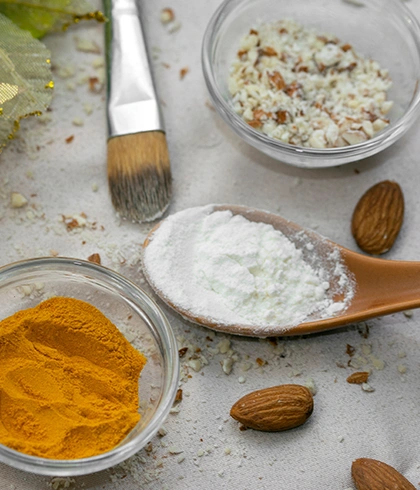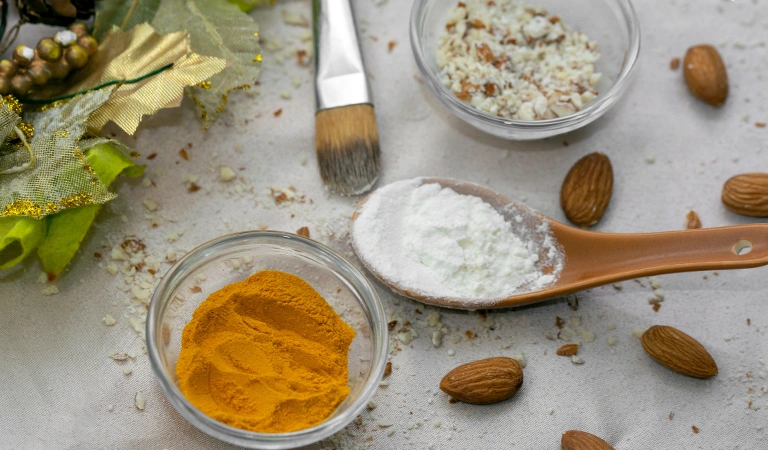

Natural Home Remedies for Skin Rashes by Dr Batra’s®
Skin rashes are a common issue that almost everyone experiences at some point. These can arise from various triggers, such as allergies, irritants, or environmental factors, leaving the skin red, itchy, and uncomfortable. For many people, home remedies for skin rashes offer a simple, natural, and convenient way to tackle these issues without relying on over-the-counter medications.
Natural remedies are gaining popularity because they often come with fewer side effects and have been trusted for generations to provide relief. From soothing inflammation to reducing redness, many natural ingredients have properties that can support the skin's healing process. Learn more about effective, safe remedies for skin allergy home remedy options that are easy to try and can help with various types of rashes.
But remember, not every remedy discussed below might be suitable for you and your skin type. If you are facing a persistent issue with skin rashes, you should try Dr. Batra’s homeopathic skin treatments in UAE. We’ve been handling treatments for various skin conditions for over 40 years. Our doctors can assess your specific case and develop a treatment plan entirely customized for your needs.
Natural Remedies Available for Skin Rashes
Turning to natural ingredients to manage skin issues is not only far more affordable, it also allows you to avoid harsh chemicals that may irritate sensitive skin further, or cause other unpleasant side effects. For example, common remedies such as honey, oatmeal, and aloe vera are known for their soothing properties and ability to help with rashes caused by allergies, dryness, and infections.
Here, we’ll go through each remedy and guide you on how best to use them for your skin allergy treatment at home.
1. Aloe Vera: The Ultimate Soother
Aloe vera is renowned for its cooling and anti-inflammatory properties, making it one of the most effective home remedies for skin rashes. It’s especially useful for rashes caused by sunburn, allergic reactions, or general irritation. Here’s how you can use it:
- Preparation: Cut a fresh aloe vera leaf, scoop out the gel, and apply it on the rash. Aloe vera gel is available in stores too, but always choose a product without additives or fragrances.
- Application: Gently spread the gel on the affected area and leave it on for about 20 minutes before rinsing it off with cool water.
- Effectiveness: Aloe vera provides immediate cooling relief and helps reduce inflammation, which can help with skin allergies, itching, and redness.
Aloe vera is suitable for most skin types, but it’s always wise to do a small patch test, especially if you have sensitive skin.
2. Oatmeal Baths for Irritated Skin
Oatmeal is not just a breakfast staple; it’s also excellent for treating skin rashes. Known for its anti-inflammatory properties, oatmeal can relieve itching and inflammation. This skin rashes treatment at home is ideal for rashes caused by eczema, poison ivy, or general dryness.
- Oatmeal Bath: Add 1 cup of colloidal oatmeal to a lukewarm bath and soak in it for 15-20 minutes. Avoid using hot water, as it might worsen the rash.
- Oatmeal Paste: Alternatively, you can mix colloidal oatmeal with water to create a paste and apply it directly to the affected area. Leave it on for about 15 minutes before rinsing it off.
- Effectiveness: Oatmeal creates a protective barrier on the skin, locking in moisture and soothing irritated areas. This remedy is effective for rashes caused by skin allergy treatment and environmental factors.
Also Read: Home Remedies to Treat Eczema
An oatmeal bath is particularly helpful for children, as it’s gentle on the skin and reduces discomfort naturally.
3. Coconut Oil: A Natural Moisturizer for Rashes
Coconut oil is a popular home remedy for itchy skin because of its moisturizing properties. It helps hydrate dry, itchy skin, making it an ideal choice for rashes related to dryness, such as dermatitis.
- Application: Clean the affected area and gently massage a small amount of coconut oil onto the rash. Let it sit for as long as possible before washing it off.
- Frequency: Coconut oil can be applied multiple times a day, especially if the skin is dry.
- Effectiveness: The oil creates a barrier on the skin, preventing moisture loss and reducing itchiness. It’s gentle and safe, even for children.
With its natural moisturizing effect, coconut oil is beneficial for both soothing the rash and keeping the skin hydrated.
4. Apple Cider Vinegar: A Natural Astringent
Apple cider vinegar (ACV) is another well-regarded skin allergy treatment option, known for its antifungal and antibacterial qualities. It’s especially effective for rashes caused by fungal infections.
- Preparation: Dilute ACV with an equal amount of water. For sensitive skin, further dilution may be necessary.
- Application: Apply the diluted mixture to the rash by using a cotton ball and let it dry naturally. Avoid using ACV on broken skin, as it can sting.
- Warning: Those with sensitive skin should use caution, as undiluted ACV can cause a burning sensation.
Apple cider vinegar is highly effective for certain types of rashes, but always ensure it’s properly diluted before applying it.
5. Honey: Nature’s Antibacterial Remedy
Raw honey, with its natural anti-inflammatory and antibacterial properties, can provide relief for rashes caused by infections. This home remedy for skin allergies is particularly helpful for rashes like diaper rash or acne-related skin irritation.
- Application: Apply a small amount of raw honey directly to the affected area and leave it on for 15-20 minutes. Rinse off with lukewarm water afterwards.
- Effectiveness: Honey’s antimicrobial properties prevent the rash from worsening, while its soothing nature reduces redness and swelling.
- Special Cases: Honey works well for sensitive areas prone to bacterial infections.
Honey is safe and effective for both adults and children, making it a versatile remedy.
6. Turmeric: An Anti-Inflammatory Powerhouse
Turmeric, a staple in many Indian households, is celebrated for its anti-inflammatory and healing properties. It is beneficial for chronic skin conditions like dermatitis and psoriasis, providing a reliable skin rashes treatment at home option.
- Preparation: Mix 1 teaspoon of turmeric powder with coconut oil or water to make a paste.
- Application: Apply the paste to the rash and leave it on for about 20 minutes before rinsing it off.
- Effectiveness: Turmeric reduces inflammation and promotes healing, making it a useful remedy for long-lasting rashes.
Turmeric is safe for external application, though it may leave a slight yellow stain, which can be washed off after a few applications.
Conclusion
Using natural ingredients can be an effective way to manage skin rashes at home. Remedies like aloe vera, oatmeal, and honey are simple yet powerful solutions for treating skin allergy treatment at home. However, it’s essential to understand the cause of a rash before starting any treatment, as some rashes might need medical attention.
For ongoing or worsening symptoms, it’s best to seek professional advice from a healthcare provider, like Dr Batra’s®, who can recommend skin allergy treatments that are most suitable for your specific situation. Get in touch for a consultation today!
FAQs
How do I know if my rash requires medical attention?
If the rash spreads rapidly, causes severe pain, or is accompanied by fever or breathing difficulty, consult a doctor immediately for proper guidance.
Can I use these remedies on children's skin rashes?
Yes, mild home remedies for skin rashes, like oatmeal baths or coconut oil, may be safe, but always test a small patch first to avoid reactions.
Are there any side effects to using natural remedies?
Generally, natural remedies are gentle, but some people may experience mild irritation. Perform a patch test to make sure that they suit your skin type.
How long should I continue applying these remedies?
For mild rashes, continue applying the skin allergy home remedy for a few days. If no improvement occurs within a week, seek medical advice.
Can I use more than one remedy at the same time?
Yes, combining remedies like aloe vera and oatmeal is fine, but apply separately to monitor any skin reactions and ensure they work effectively.




